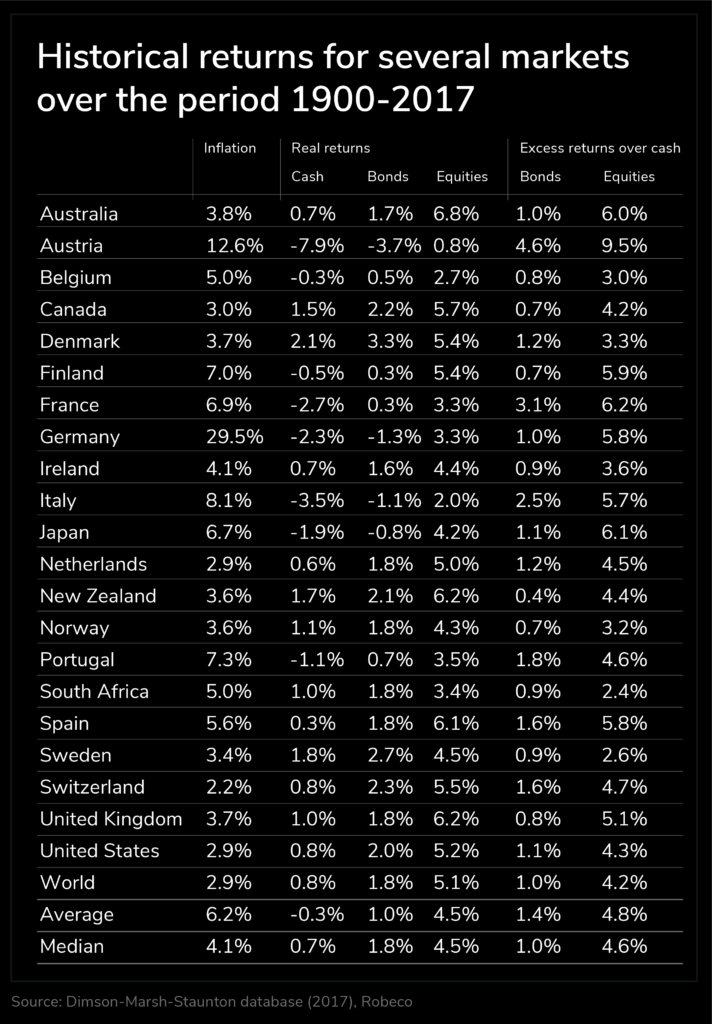Long-term investing is an investing strategy designed to take advantage of two powerful forces – compound interest, and the fact that many markets slowly rise in value over time. Though it’s important we mention that there are some exceptions. For example, the Japanese stock market still hasn’t recovered from its peak in 1989!
Long-term investing is a matter of optimizing your decision-making to produce the highest possible returns over decades, rather than aiming to capitalize on short-term market trends.
If you’d like an in-depth explanation of compound interest and the role it can play in investing, we recommend reading this article of ours. But, in short, compound interest makes it possible to exponentially increase your wealth over time by reinvesting your annual returns, rather than taking them out as cash. This mechanism relies on the fact that most markets rise in value over time, which we can best see with this report of Credit Suisse’s:

It shows that since 1900, equities (stocks in companies) in all studied markets have followed a positive trend.
But while the equity markets rose as a whole, it is certain that many individual companies failed each year. It’s for that reason that diversification is a critical part of any long-term investment strategy.
To diversify is to spread your wealth across multiple investment types. The result is that some assets you invest in will lose value, but they will likely be compensated for by good performance from other assets you own.
To understand the nuances of diversification (there are a few details to be aware of), check out this article.
With this basic understanding of the long-term perspective, you can explore the full set of articles we’ve created to answer the most commonly asked questions about long-term investing:
- How long is long-term investing?
- When to buy and sell stocks/bonds/assets
- How to do investment research?
- Creating a long-term investment strategy
- Control your vices and become an investment master
Once you’ve built your understanding, you can use The Masterclass to learn the foundational knowledge every investor needs to build a strategy and buy their first assets.
Onto the next article: How long is long-term investing?
***
Disclaimer:
The content of any publication on this website is for informational purposes only.




